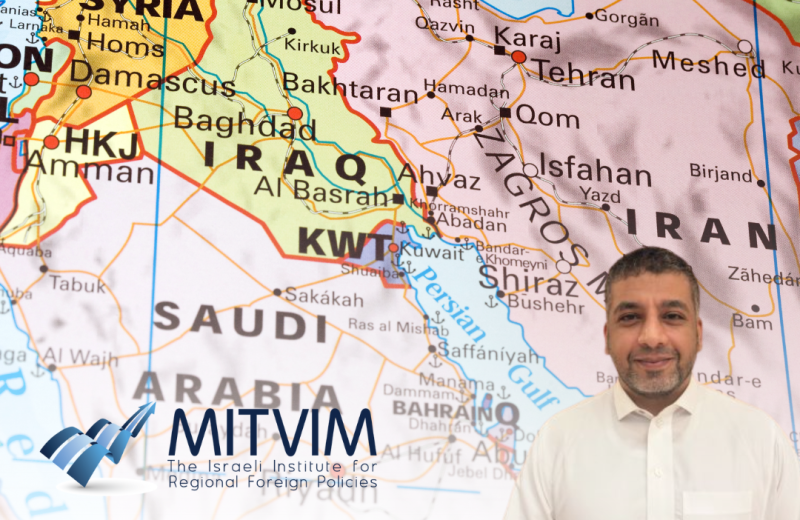 Op-eds
/ Israel-Iran War
Op-eds
/ Israel-Iran War
In a special conversation with the Mitvim Institute, Saudi scholar Dr. Aziz Alghashian – a senior research fellow at Mitvim – shares a Gulf perspective on the Israel-Iran conflict, calling for diplomacy and regional cooperation before it’s too late.
As the open conflict between Israel and Iran intensifies and American involvement increases, Dr. Aziz Alghashian, a leading Saudi expert on foreign policy, offers a sobering viewpoint from the Gulf. Speaking with Mitvim’s Head of Research, Dr. Roee Kibrik, Alghashian expressed grave concern about the direction the region is heading and the failure to resolve long-standing regional issues.
“This Isn’t a Time for Celebration — It’s a Time for Anxiety”
Contrary to popular assumptions, Gulf states are not quietly rejoicing over Iran’s current predicament, Alghashian insists. “We are deeply anxious. Every time missiles are fired at Israel, we ask ourselves: what if they were aimed at us? They have been before. We’re on the front lines.”
He adds: “Some suggest Saudi Arabia is secretly happy about the attacks on Iran. That’s nonsense. We’re not pleased – we’re alarmed. What’s happening now threatens the entire region.”
“Diplomacy Is the Only Way Forward”
According to Alghashian, Saudi Arabia made a clear strategic decision years ago: to pursue diplomacy, even with rivals like Iran. “A military confrontation with Iran would lead to endless war. They have skilfully complicated the regional arena. The only way forward is through diplomacy and trust-building.”
He warns that recent Israeli strikes on Iran could accelerate Tehran’s nuclear ambitions: “The fear is real. Instead of stopping Iran’s nuclear program, these attacks may push them to weaponize it faster.”
Thinking in Decades, Not Days
Alghashian highlights that Saudi leadership – particularly Crown Prince Mohammed bin Salman – is planning far ahead. “MBS is 39. In twenty years, he’ll be 59 — still young by leadership standards. Iran won’t disappear, and Saudi Arabia is preparing to coexist. That’s why normalization with Israel, under these current conditions, is not realistic.”
No Single Leader — A Need for Collective Regional Vision
When asked who could lead the Middle East into a more stable future, Alghashian is clear: “No one. And that may be a good thing. The region lacks a single hegemon, which means collective action is essential.”
But for regional cooperation to be viable, Israel must change course. “Israel is showing military power. That might impress some, but it doesn’t invite trust or partnership — especially when it comes alongside the occupation, Gaza’s destruction, and regional instability. Under these conditions, normalization with Arab states is politically unthinkable.”
“No Regional Future Without Addressing the Palestinian Question”
For any regional order to emerge, the Palestinian issue must be addressed. “Arab states won’t engage in real cooperation with Israel while the occupation continues and Gaza suffers. This isn’t seen as peace — it’s submission.”
He points to historical precedent: during the Gulf War, Israel refrained from retaliating against Saddam Hussein’s missile attacks — a move quietly appreciated in Saudi Arabia. “That kind of restraint created the impression of cooperation. Today, we’re not seeing that same spirit.”
“We All Belong to This Region – Let’s Build a Shared Future”
In closing, Alghashian offered a personal message to the Israeli public: “I don’t want to see people running to shelters — not in Israel, not in Gaza. We’re all part of the same region. The sooner we accept that and act accordingly, the better.”


